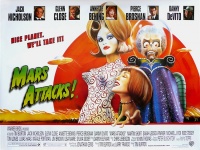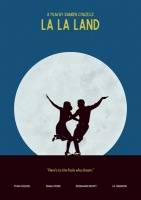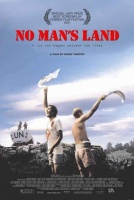
The Bosnia and Herzegovina civil war serves as the backdrop for No Man's Land - and the film is easily one of the best of 2001. Writer/director Danis Tanovic has created a movie that combines sharp satire with a powerful, even-handed look at a war that has no clear victors, only victims.
The film opens with a Bosnian army relief patrol attempting to get through a dense fog at nighttime, unaware of where they are or who might be out there waiting for them. Since they can barely see two feet in front of them, they decide to stop for the night...

The misadventures of Mickey and Mallory: outcasts, lovers, and serial killers. They travel across Route 666 conducting psychadelic mass-slaughters not for money, not for revenge, just for kicks. Glorified by the media, the pair become legendary folk heroes; their story told by the single person they leave alive at the scene of each of their slaughters...
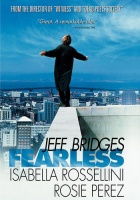
After a terrible air disaster, survivor Max Klein emerges a changed person. Unable to connect to his former life or to wife Laura, he feels godlike and invulnerable...

"Cookie's Fortune," an ode to the charms and afflictions of small town Southern life from superlative director Robert Altman, opens, appropriately enough, with a leisurely, cinematic stroll around Holly Springs, Miss., introducing the players in what will become a sympathetic satire of Dixie Gothic manners and mores...
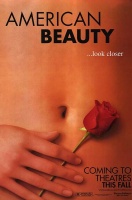
Corrosive, provocative, and iconoclastic, American Beauty strips America and, by extension, the famous American Dream.
Even more surprising, American Beauty comes from Dreamworks, who has specialized in promoting politically correct values...
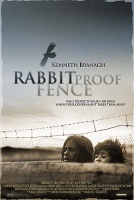
After directing a number of major motion pictures in the United States, Australian-born filmmaker Phillip Noyce returned home to make this remarkable adventure-drama, based on a true story as well as a lamentable period in his nation's history...
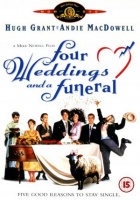
I want to be Hugh Grant. No, let me rephrase that - I am Hugh Grant...that is, if Hugh Grant was American, twice as befuddled and half as charming. Oh, and really, really tall. What I mean to say is...oh, blast.
In the realm of the chick flick, there is no better model for how to win women without actually being overtly masculine than Hugh Grant...
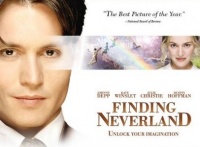
Hot off his recent Academy Award nomination, Johnny Depp’s follow up to last year’s Once Upon a Time in Mexico and Pirates of the Caribbean: The Curse of the Black Pearl is none other than Finding Neverland. Originally slated for a release last Christmas, the then titled J.M. Barrie’s Neverland was shelved to avoid going head to head with the latest adaptation of J.M. Barrie’s greatest work, Peter Pan...

In 1995 a mob of ticketless Pearl Jam fans ripped down the fencing around the Sidney Myer Music Bowl in Melbourne, zig-zagging around police on horseback and down into the crowd. This wasn't your traditional rag-tag bunch of sweaty dudes running in diagonals hoping they'd make it past security - thousands of people streamed into the venue. Such was the kind of frenzy Pearl Jam did inspire in their hey day. I was one of them...
